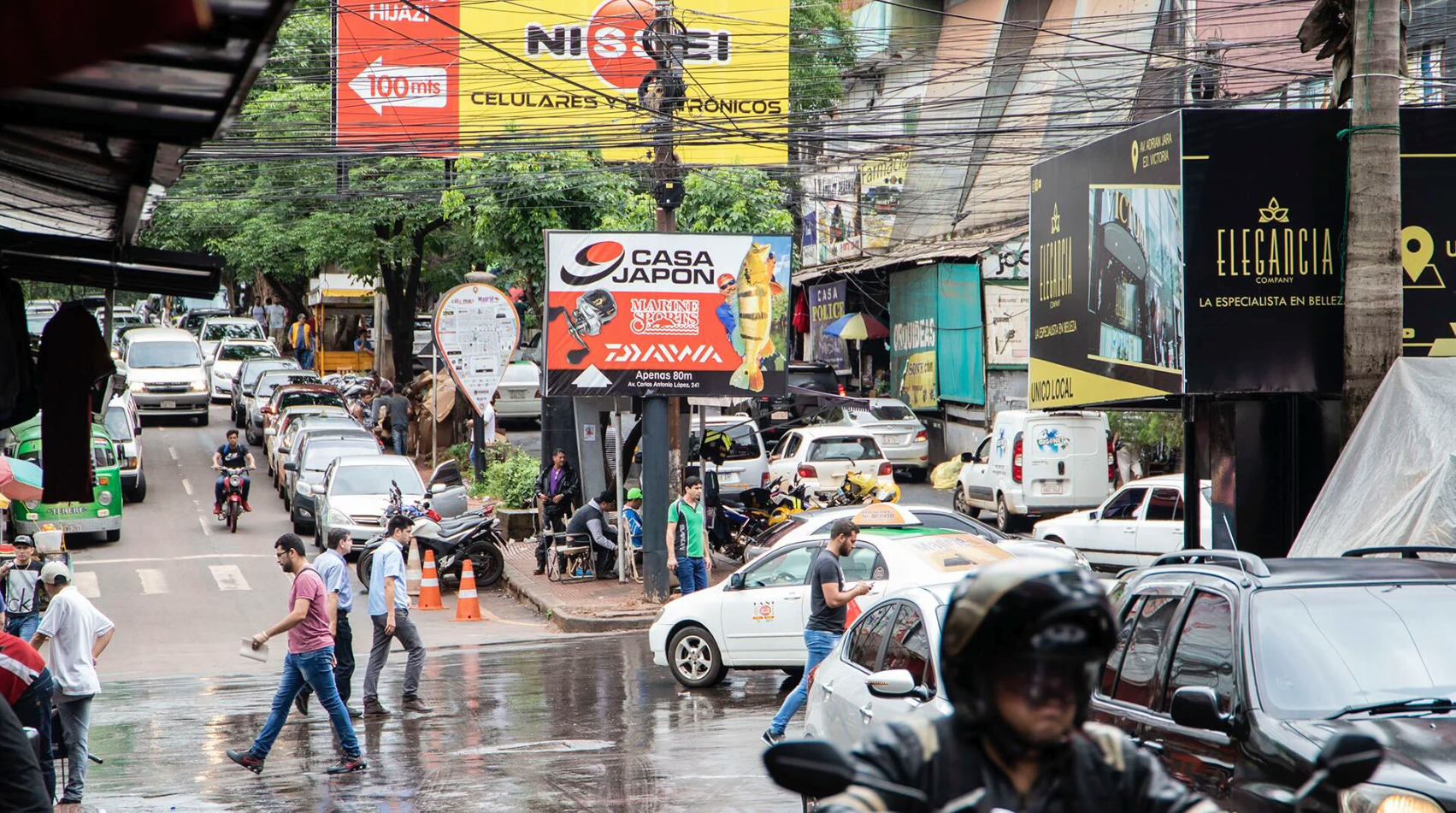Hezbollah, the Lebanese Shiite militant group, has maintained a presence in Latin America since the 1980s, using the region as a base for fundraising and terrorist operations. How do they operate, and how can this issue be addressed?
Hezbollah’s financial infrastructure in Latin America is built on illicit activities such as drug trafficking, counterfeiting, and smuggling. These activities generate significant income and provide a means for money laundering. At the same time, the group integrates into legitimate economic sectors, using front companies and business associations to conceal its illegal operations.
Terrorism specialist Emanuele Ottolenghi, senior fellow at the Foundation for Defense of Democracies, states that “Hezbollah’s presence in the region has been facilitated by the Lebanese diaspora, which provides a network of cultural and financial support.” Regions like the Tri-Border Area between Argentina, Brazil, and Paraguay have become hotspots for Hezbollah’s activity, with direct consequences for the security of these countries.
Ottolenghi also notes that the group receives support from global diaspora communities to build money-laundering networks and invest resources through its Global Dawa initiative, which maintains the loyalty and tangible support of the diaspora. These investments include funds for mosques, schools, cultural centers, youth movements, and charitable associations. The organization sends clerics, instructors, and teachers to lead these institutions, ensuring the indoctrination and continued loyalty of the communities.
This system has allowed certain communities to become culturally aligned with Hezbollah’s objectives. It’s a multifaceted strategy that ensures a constant flow of resources and support, enabling the group to operate with relative impunity in the region. As Ottolenghi points out, Hezbollah’s supporting social infrastructure is strong, and its influence is increasingly expansive.
The university that exports the Islamic Revolution
Let’s add some context. The Iranian regime began gaining ground in Latin America shortly after the 1979 Islamic Revolution. In 1983, cleric Mohsen Rabbani was sent to Argentina to lead the Al-Tawhid Mosque in Buenos Aires, marking the start of a deep influence in the region that culminated in the 1994 AMIA bombing. After returning to Iran, Rabbani established the regime’s most organized indoctrination system abroad, with Latin America as its main target through Al-Mustafa University, founded in 2007 in Qom by order of Supreme Leader Ali Khamenei.
With an annual budget of $74 million, Al-Mustafa University has become a hub for disseminating Khomeinist ideology. The institution trains clerics from around the world to spread revolutionary Shiite ideology and serves as the main center for recruiting and training foreign converts. A department specifically dedicated to Latin America, the American Islamic Cultural Institute, headed by Mohsen Rabbani, selects disciples and distributes texts in Spanish and Portuguese. This structure ensures a constant flow of resources and maintains the loyalty of communities through investments in mosques, schools, and cultural centers.
IranWire highlights that Al-Mustafa’s strategy is methodical: with a generous package of financial incentives, it attracts international students, who receive economic support for their studies in Iran and abroad. A large percentage of them are Latin Americans, who then propagate the doctrines of the Islamic Revolution, creating cultural centers and local political parties aligned with Hezbollah. Al-Mustafa’s activities, including recruitment for foreign militias, have led to sanctions from the U.S. Treasury Department, warning of its role in Iran’s global strategy to export its ideology and expand its influence.
It’s not just about indoctrination. Hezbollah has been implicated in several attacks in Latin America, the most well-known being those carried out in Argentina during the 1990s.
Financial and criminal operations
The growing threat Hezbollah poses in Latin America is linked to its drug trafficking and money-laundering activities. According to the Foundation for Defense of Democracies (FDD), operations like Project Cassandra and Operation Cedar have revealed the depth of Hezbollah’s involvement in organized crime, using complex networks to launder drug money.
Despite international authorities’ efforts, Hezbollah’s operations in Latin America remain robust, with recent incidents in Brazil demonstrating its ability to plan terrorist attacks. Collaboration with Latin American drug cartels has strengthened its logistical and financial capabilities, a problem exacerbated by the lack of terrorist designation in several countries in the region.
Indeed, the Tri-Border Area has become a money-laundering epicenter for Hezbollah. There, the group takes advantage of porous borders and weak financial controls to launder millions of dollars annually, using front companies, currency exchange houses, and casinos to clean money from illegal activities like drug trafficking and extortion.
To strengthen its financial networks, Hezbollah has also established links with Mexican drug cartels and local terrorist groups like the FARC in Colombia, collaborations that facilitate the trafficking of drugs and weapons. They use already-established drug-trafficking routes in Latin America to transport cocaine and methamphetamine to Europe and the Middle East. The profits from these actions are incalculable for the organization.
In Venezuela, Hezbollah has also ventured into illegal mining, exploiting coltan mines, a strategic mineral used in manufacturing electronic components. This activity, another substantial source of funding for the organization in the region, benefits from corruption and the lack of state control in Venezuela to illegally exploit natural resources, as exposed in a UN report.
Challenges and responses
The ability of Latin American countries to effectively combat Hezbollah’s activities is limited by the lack of terrorist designation for the group in many countries in the region. Only Argentina, Colombia, Guatemala, Honduras, and Paraguay have officially designated it as a terrorist organization, and this lack of regional consensus has hindered the implementation of effective and coordinated policies to counter the group’s influence and illicit activities in Latin America. However, international cooperation, especially with the United States and Israel, is key to mitigating Hezbollah’s networks in the region.
Therefore, it is imperative that Latin American countries strengthen their law enforcement capabilities to detect, stop, dismantle, and deter criminal and financial operations. This includes improving the training and resources of security and intelligence forces, as well as fostering cooperation between security agencies in different countries.
The enforcement of local and regional criminal policies regarding money laundering and the financing of terrorist groups could be another viable formula to counter Hezbollah’s threat in the region. As countries work together to create a united front against these illicit activities, implement stricter laws, and ensure they are enforced effectively, it will be possible to establish control mechanisms and sanctions that can deter the organization’s operations and close the financial and logistical channels supporting its terrorist activities.
Although Hezbollah has established a robust presence in Latin America, using the region as a base to finance its global operations and carry out terrorist attacks, international cooperation and strengthening local law enforcement capabilities are essential to countering this threat. Only through a joint and coordinated effort can the region effectively address the threat Hezbollah poses, ensuring greater security and stability in Latin America.













